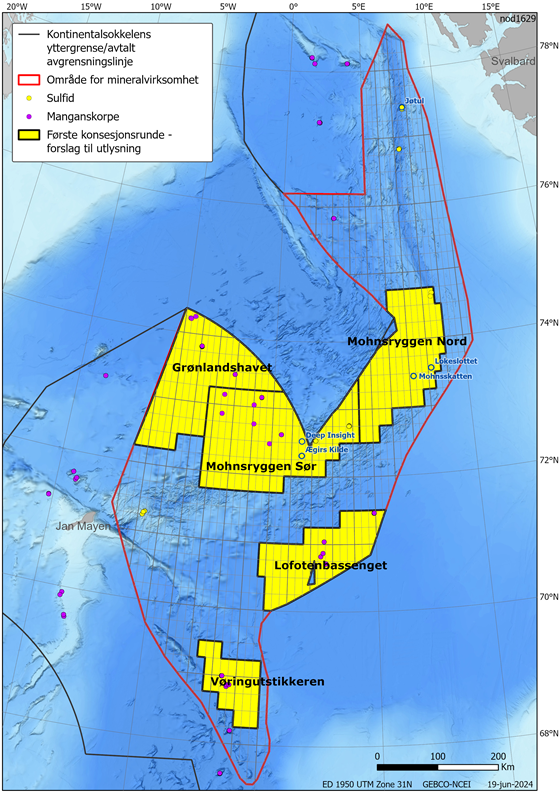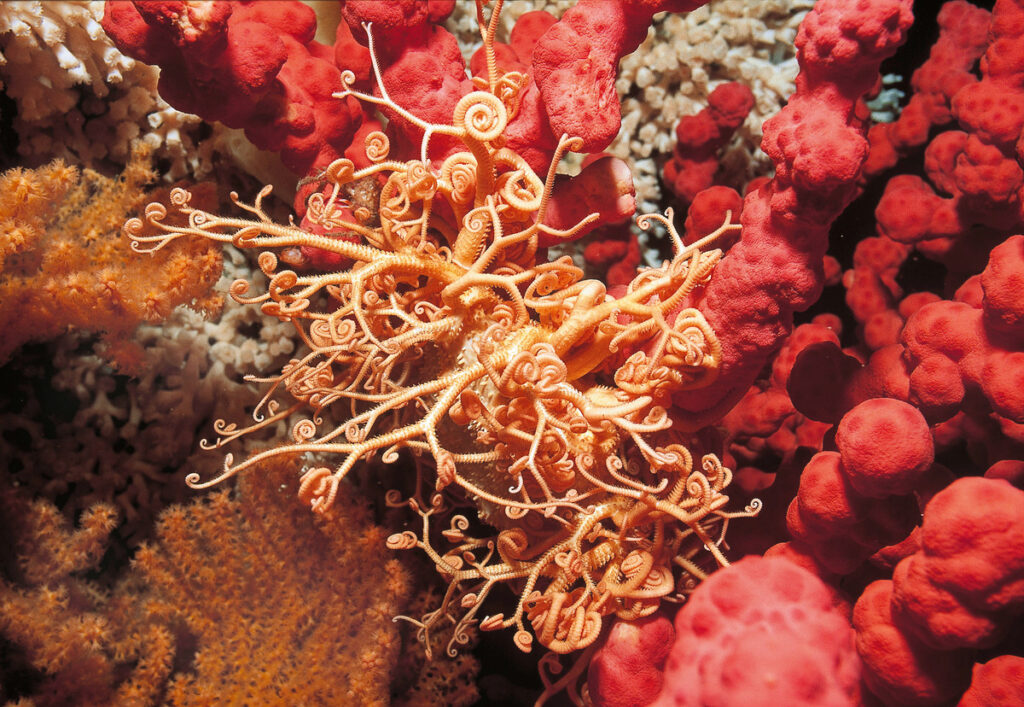© Bit Cloud / Unsplash
Features
Norway undermines the High Seas Treaty by rushing deep sea mining authorization
- Deep sea mining
- Governance
- Norway
Norway wants to lock in licenses for deep sea mining before the High Seas Treaty comes into force. But when signing the Treaty, Norway already subscribed to upholding the Treaty’s aim to protect biodiversity beyond national jurisdiction against such destructive activities. Will short-term economic gains prevail over responsible stewardship? Jan Dusík explains.
In January 2024, the Norwegian Parliament approved the controversial proposal to open the area for exploration of the seabed for mining of minerals. The decision and its justification were heavily criticized by scientists, NGOs and international partners. Most recently, the EU Council noted concern with the Norwegian Parliament’s decision of 9 January 2024 on seabed mining in the Arctic. The EU emphasized Norway’s international commitments and the necessity of a thorough environmental impact assessment of potential mining activities.
Last Monday, the Norwegian government announced that deep sea mining licenses will be granted for exploration and exploitation at the same time. This exposes the reality of what critics were saying all along: that opening exploration is de facto opening for exploitation too.
As Karoline Andaur, CEO of WWF Norway, points out “Experience from the petroleum industry indicates that once significant investments are made, halting projects due to environmental concerns becomes nearly impossible.”

© Ministry of Energy / Government of Norway
This push for deep seabed mining comes at a time when Norway chairs the Arctic Council. There, Norway is working to prove that the Council can still ensure environmental stewardship in the Arctic against the odds of geopolitical tensions.
What is even more concerning is that the rush to open the Norwegian continental shelf to deep seabed mining seems driven by the desire to secure this controversial activity before the newly adopted High Seas Treaty, also known as the BBNJ Agreement, comes into force, possibly within a year.
The Treaty requires parties to conduct a thorough environmental impact assessment before authorizing any activity that could endanger biodiversity in areas beyond national jurisdiction. In this case, this means impact particularly on the high seas above parts of Norway’s extended continental shelf. Yet, Norway’s environmental assessment for opening of its continental shelf to deep sea mining was superficial and insufficient to assess the impacts on the area’s unique biodiversity.

© Erling Svensen / WWF
Norway signed the High Seas Treaty on 20 September 2023, but has not yet ratified it. When a party signs a treaty, Article 18 of the Vienna Convention on the Law of the Treaties obliges parties “to refrain from acts which would defeat the object and purpose of a treaty”. By pursuing mining the seabed on its continental shelf without adequate environmental assessment, Norway defeats the object and purpose of the High Seas Treaty, which it signed and is obligated to uphold. Therefore, this pursuit of deep sea mining is already problematic – even before the Treaty enters into force and Norway ratifies it.
Instead of leadership in global ocean protection and respect for the precautionary approach mandated by customary international law, Norway appears to be prioritizing its short-term socio-economic interests, rushing to act before its conflict with international obligations becomes evident.